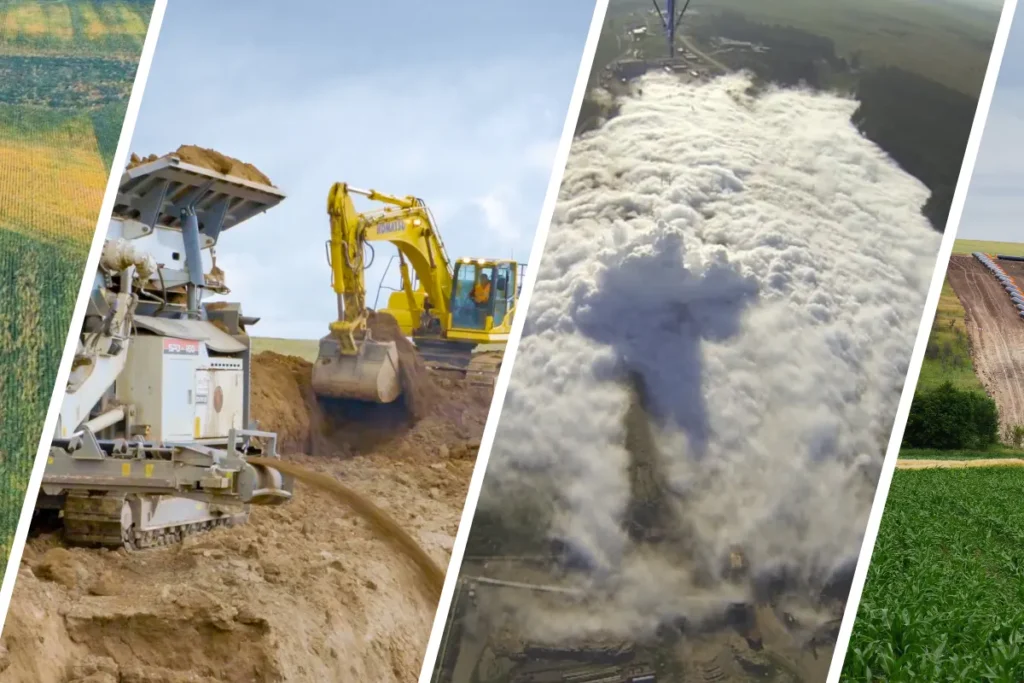Last Thursday, the Minnesota Public Utilities Commission (PUC) concluded a series of public and evidentiary hearings regarding the Final Environmental Impact Statement (FEIS) and route permit for the 28-mile Otter Tail to Wilkin Counties segment of Summit Carbon Solutions’ (Summit) proposed 240+ mile carbon dioxide (CO2) pipeline network in Minnesota.
During public hearings held in Fergus Falls, MN, and virtually, Administrative Law Judge Christa Moseng heard from dozens of landowners from across the pipeline network’s footprint, impacted residents, and other Minnesotans who largely expressed concerns. Minnesotans voiced their continuing reservations about the project and the lack of information being provided by the company and the state agencies responsible for preparing an adequate environmental review—especially with regards to the burdens on water resources and impacts on health and safety.
One of the few to speak in favor of the project at the virtual hearing was Mike Karbo, representing the American Petroleum Institute. API—a major fossil fuel industry lobbying group—has recently stepped up its advocacy for CO2 pipelines which are critical for expanding the Carbon Capture sector, a priority for the oil and gas industry. Although Summit presents its project as necessary for reducing carbon emissions from the ethanol industry, CURE and other opponents of the pipeline network have raised the alarm about the likelihood that the project will also serve as a boon to the fossil fuel industry.
“We have always contended that CO2 pipeline developers like Summit are using anxieties about the changing economics of agriculture to push forward infrastructure that will clearly benefit Big Oil—whether by funneling more CO2 towards Enhanced Oil Recovery or giving cover to the false promise of ‘cleaner’ fossil fuels,” said Maggie Schuppert, Campaigns Director at CURE. “It’s clarifying to have API put that on the record in Minnesota.”
The public hearings were followed by evidentiary hearings before Judge Moseng during which CURE’s expert witnesses testified about the shortcomings of the FEIS and Summit’s questionable claims about the proposed project’s benefits.
“Neither Summit nor the MN Department of Commerce provided any testimony or evidence during the hearings to assuage our concerns about this first-of-its-kind project and the severe and lasting impacts it will have on our communities and environment,” said Sarah Mooradian, CURE’s Government Relations and Policy Director. “Minnesotans want and deserve unbiased, independently verified information about this project’s impacts, not questionable data and unsupported claims from the applicant presented uncritically as ‘fact’.”
Background: This proposed project is part of Summit’s push for a $8.5 billion, 2,500-mile web of pipelines that would carry high-pressure CO2 from dozens of ethanol and other industrial facilities in Minnesota, Iowa, Nebraska, North Dakota, and South Dakota to sites in North Dakota where it can be injected into the earth to either extract oil or into saline aquifers underground for longer storage. Incentivized by the promise of billions of dollars in state and federal taxpayer-funded subsidies, Summit’s project has become a political flashpoint across the Midwest where landowners and communities in the footprint have raised concerns on a wide range of issues including safety and land-use impacts.
The Final EIS is an official document intended to provide decision-makers and the public useful information about the social, environmental, and economic impacts and risks of the pipeline, and its preparation is a requirement under the Minnesota Environmental Policy Act (MEPA). While Summit is applying for a variety of permits in all five states, and recently received approval for hundreds of miles of the pipeline in Iowa, Minnesota’s FEIS is the only in-depth review of its kind at either the state or federal level. To date, Summit has not yet applied for permits for any of the over 200 miles of remaining pipeline it has stated in intends to build in Minnesota.
Additional info about CO2 pipelines: carbonpipelinesmn.org


